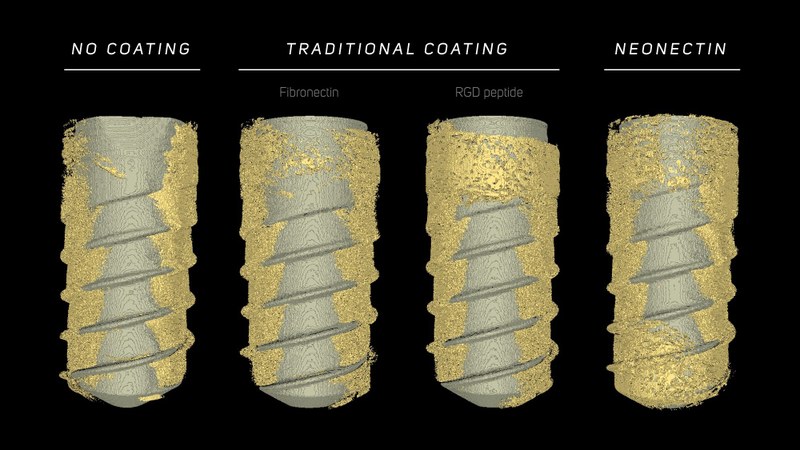NeoNectins, or how to help your body heal naturally
Jun 16, 2025
Dr. Jordi Guillem-Martí, along with researchers from the BBT and the Baker Lab (USA), has just published a new study in Advanced Materials introducing a new class of proteins called NeoNectins, designed to actively engage the body’s natural healing processes.
Modern implants and wound dressings are normally treated with special coatings aimed at promoting healing. However, many of these coatings rely on complex chemical signals that cells don’t fully recognize or respond to. That is why finding new ways to promote cellular healing after surgery, injury, or aging has become a top priority.
So how does cellular healing work? Typically, it depends on cells anchoring themselves to surrounding tissues. This is where integrin α5β1, a key receptor on the cell surface, comes in: it helps cells stick to the extracellular matrix, allowing them to better sense their environment and respond to signals that guide growth, division, and migration.
The project, that describes the discovery of these new custom proteins designed to enhance tissue healing, was led by Dr. Xinru Wang, postdoctoral fellow, and Dr. Jordi Guillem-Martí, a visiting MSCA Fellow at the Baker Lab (Seattle, USA). Together, they used computational tools to design custom proteins—NeoNectins—that help guide cells to attach to biomaterials more effectively. These proteins specifically target integrin α5β1, a receptor crucial for cell adhesion, growth, and tissue repair. When grafted onto implants, NeoNectins significantly improved bone formation, outperforming traditional coatings such as RGD peptides and fibronectin.
Read the full paper for more information:
X. Wang, J. Guillem-Marti, S. Kumar, D.S. Lee, D. Cabrerizo-Aguado, R. Werther, K.A.Estrada Alamo, Y.T. Zhao, A. Nguyen, I. Kopyeva, B. Huang, J. Li, Y. Hao, X. Li, A. Brizuela-Velasco, A.N. Murray, S. Gerben, A. Roy, C.A. DeForest, T. Springer, H. Ruohola-Baker, J.A. Cooper, M.G. Campbell, J.M. Manero, M.P Ginebra, D. Baker. De Novo Design of Integrin α5β1 Modulating Proteins to Enhance Biomaterial Properties. Adv. Mater. 2025, 2500872. OPEN ACCESS.

Share: